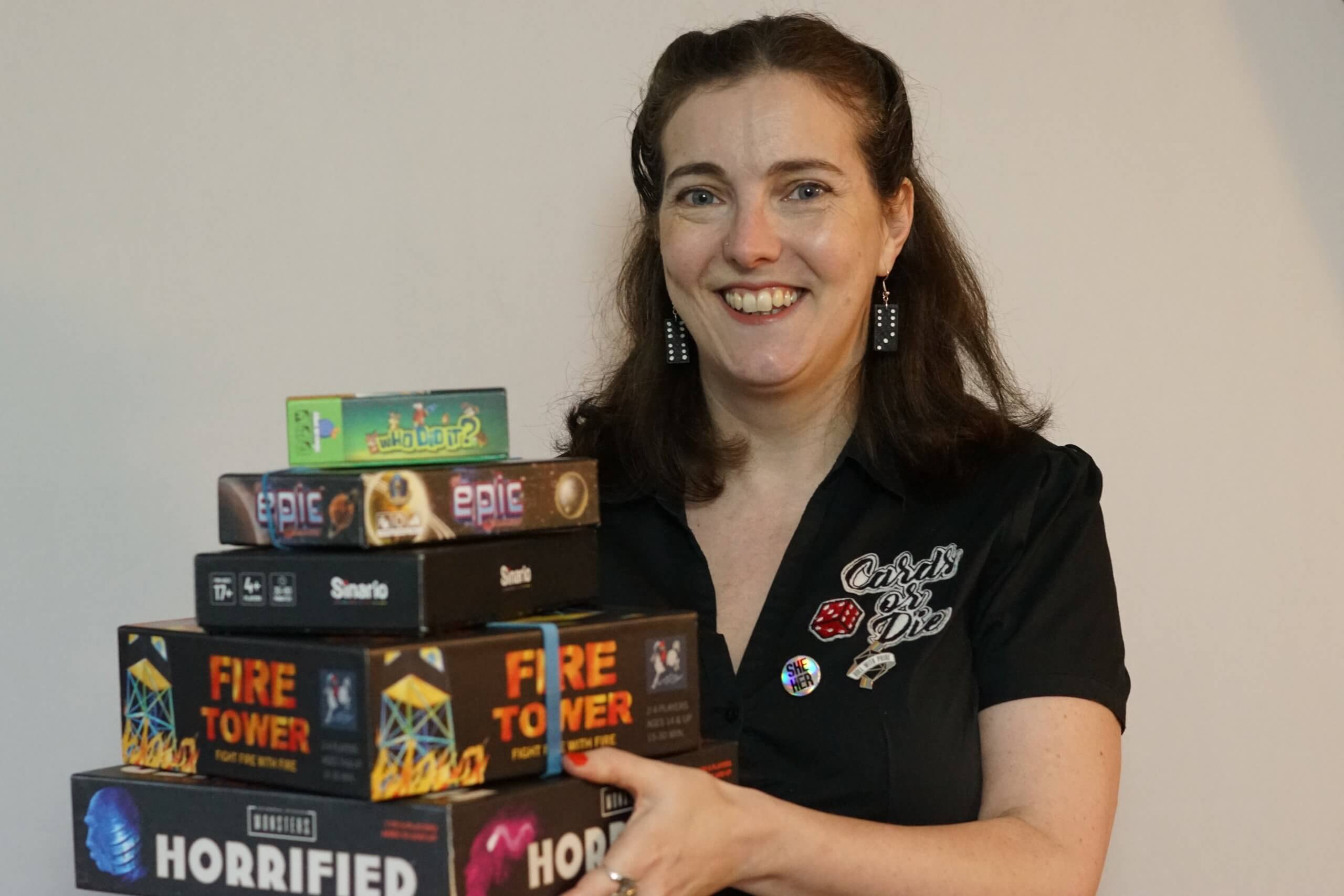In about May of this year, I hit 150 games. I had aimed to amass this amount because after all I am a travelling games lady. I know there has been some discussion online recently about the gaming community and the pressure people feel to build a large collection of games. Collecting games is not necessary and I want the gaming community to be as inclusive as possible. Gaming can be expensive which is why I focus on offering events than are free to visitors because venues pay me. If it wasn’t for Cards or Die, I would have significantly less games. Instead I would be hanging out at events like mine or games clubs and sharing games with others. I look at it this way, I have loads of games so that you don’t need to.
I picture myself as the Dick Van Dyke of gaming – if I can carry it to the event, you can play it. I was never supposed to have the games repertoire of a games cafe – as a mobile operation it’s just not necessary. 150 is plenty. But, I just can’t stop. I’m at just over 190 and this week I’ve realised I need some more vintage games for a First World War event I’ve got coming up.
The more I learn about games, the more I come across that I want. This, despite the fact that increasingly, I pick up games and say “Oh this is just a version of <insert retro game here>“. Sometimes I get it anyway – you might want to play it and who am I to stand in your way?
But some versions I have not bought. Despite the alluring art work and temptingly different categories, I have resisted the Timeline* Games. Mainly because I have and love its retro twin: Chronology. It’s a lovely, simple to learn and much overlooked game from the 1980s.
How to Play
- Each player starts with a card which details a historical event.
- Players take turns to draw a card and read it to an opponent who must identify whether it comes before or after the event in front of them.
- If they are correct, the card is added to their timeline. If not, it goes onto a discard pile.
- When future cards are drawn players must identify whereabouts in their timeline it is to be played.
- The first player to build an accurate timeline of 10 cards wins.
Like I said: simple.
The range of dates covered by the cards and the variety of historical events makes this an excellent game. Some events are close together; some you’ve never heard of and some just didn’t happen when you think they did.
It lacks the prettiness of Timeline (and if you’ve read previous blogs, you know how important prettiness is!) But I still love it and I think says a lot about a game!
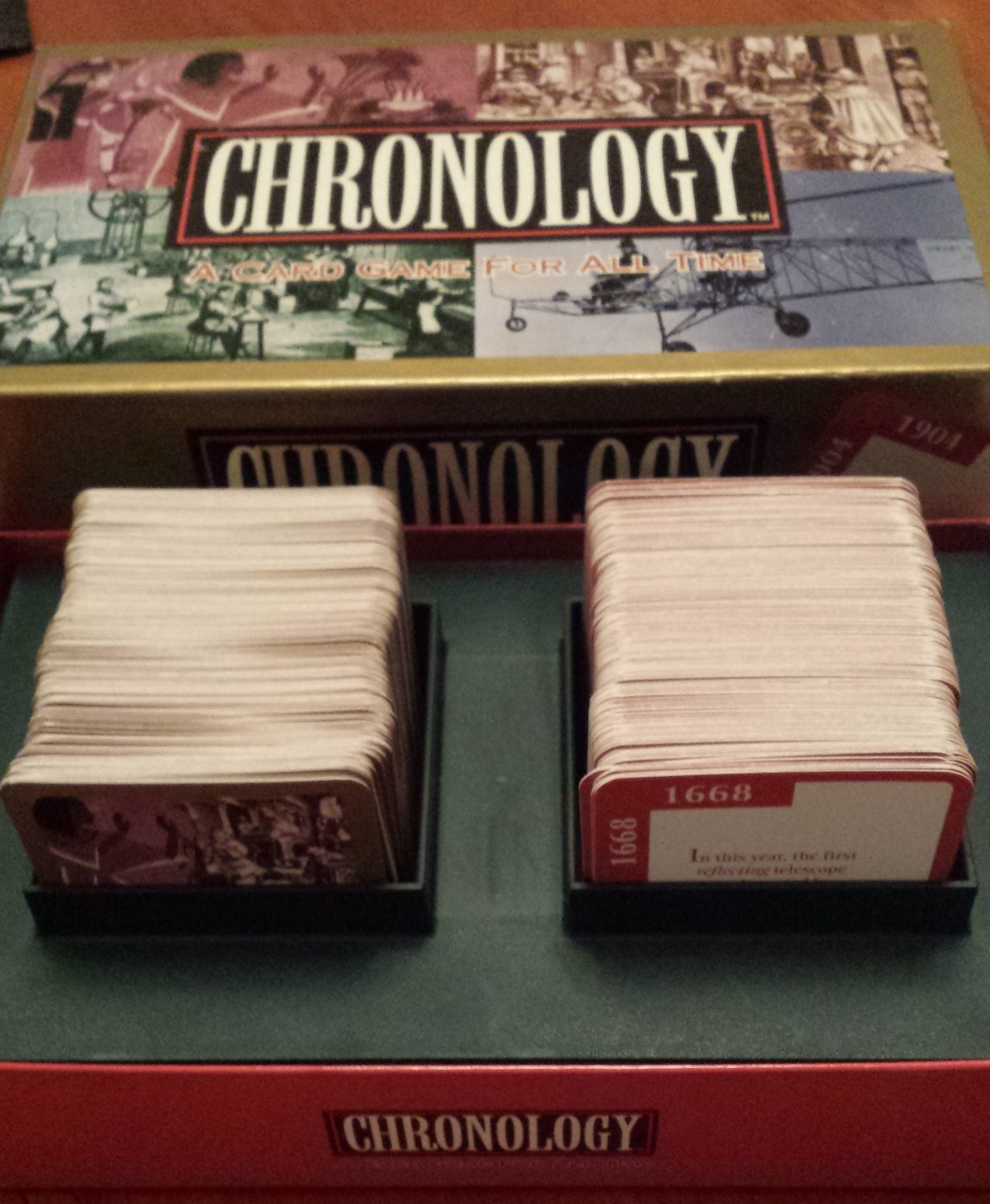
Your turn!
Have a go at putting these 5 events in order… answers on a postcard, by carrier pigeon or social media me @cardsordie. One of my exclusive new badges for winners!
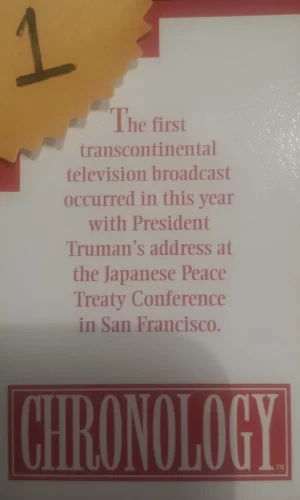
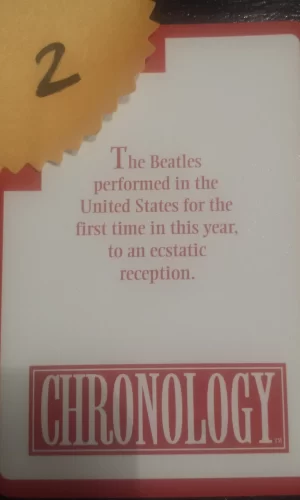
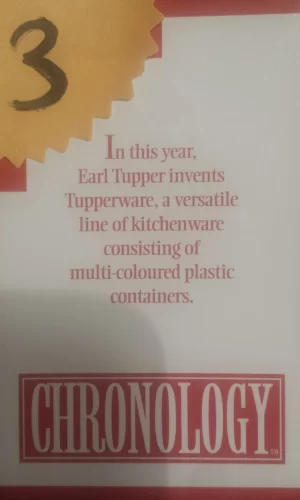
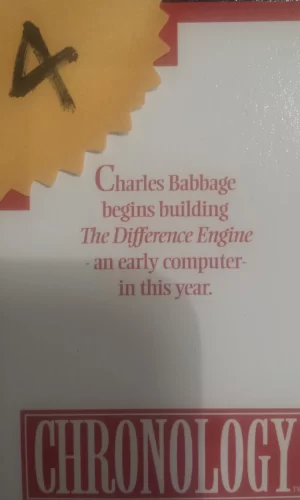
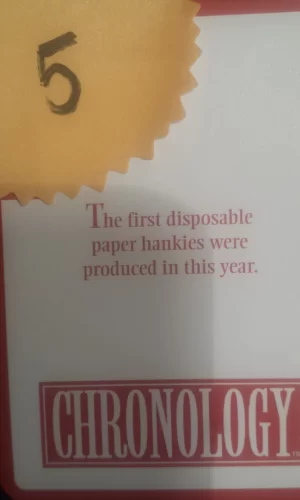
*I can’t count – I made this number up.
*please feel free to correct me if I’m wrong – if you think I need a game in my life, I’m always happy to hear suggestions and requests.
